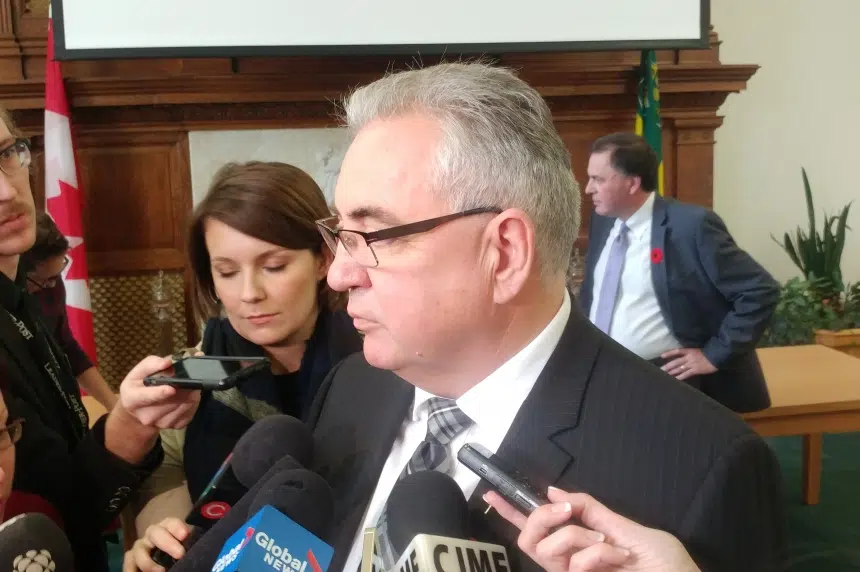The government of Saskatchewan is hoping harsher penalties reduce the province’s drunk driving rates.
SGI Minister Joe Hargrave announced the planned new penalties in the legislature Monday afternoon.
The new rules include:
- An instant three-day vehicle seizure for drivers with a blood alcohol content between .04 and .08 on a first offence.
- Raising the cutoff age for zero BAC tolerance from 19 to 21, with a 60-day licence suspension on a first offence.
- Increasing mandatory ignition interlock periods for repeat offenders.
The new rules, if passed, would take effect Jan. 1, 2017.
Hargrave touted the success of similar rules in British Columbia, where immediate vehicle seizures helped halve the drunk driving rate. However, he said court challenges to the B.C. laws encouraged his ministry to implement rules more gradually.
“We want to make sure we get it all done right,” he said. “We want to make a made-in-Saskatchewan model.”
Saskatchewan has the highest drinking and driving rate per capita across all the provinces in Canada.
The province will also be providing $1.3 million in funding to law enforcement to increase police checkstops and add more automatic licence plate readers (ALPRs).
The ALPRs scan licence plates of vehicles passing by a police cruiser, notifying the officer if the plate is stolen or unregistered. It can also determine if the driver associated with the plate is suspended or wanted by police.
There are currently 15 ALPR units used in Saskatchewan. The new funding will bring that number to 47.
FAMILY REACTIONS
Families of drunk driving victims were present at a morning ceremony to introduce the legislation. They said the legislation is a step forward, but there’s still room for improvement.
“I’m happy with it,” said Louis Van De Vorst, whose son, daughter-in-law and two grandchildren were killed by a drunk driver in January. “But I know it’s just the beginning.”
He added that beyond penalties, Saskatchewan and Canada need to realize drinking and driving is a social problem.
“Nobody should have to go through what my family went through,” he said, pointing to a new SGI ad campaign depicting family members disappearing as a good representation.
“That’s exactly what happens. Fourteen people at your dinner table, and all of a sudden four of them are gone.”
Alicia Kaufmann, whose husband was killed in the spring, said people need to realize their choices have consequences.
“It affects families and family units,” she said. “Something needs to happen now, the culture needs to change.”
She referred to a recent survey indicating nearly 20 per cent of Saskatchewan residents believe drinking and driving is okay if it’s a short distance on a quiet road.
“Those back quiet roads was a road Tanner was on,” she said. “People think it won’t happen if you take the back way home, but it obviously can.”
PUT THE SMARTPHONE AWAY
Along with tougher penalties for impaired drivers, the government will also be closing loopholes when it comes to distracted driving.
Legislation will be changed to ban drivers from holding, viewing, using or manipulating a cell phone while driving. The law currently prohibits the “use” of a cell phone.
The new language is designed to prevent prosecutors from losing court cases over what drivers were doing with their phones when pulled over.
“It couldn’t be established that they were using their cell phones,” said Minister of Justice Gordon Wyant. “A number of other provinces have done this so we think it’s an appropriate way to go.”
— With files from Sarah Mills







